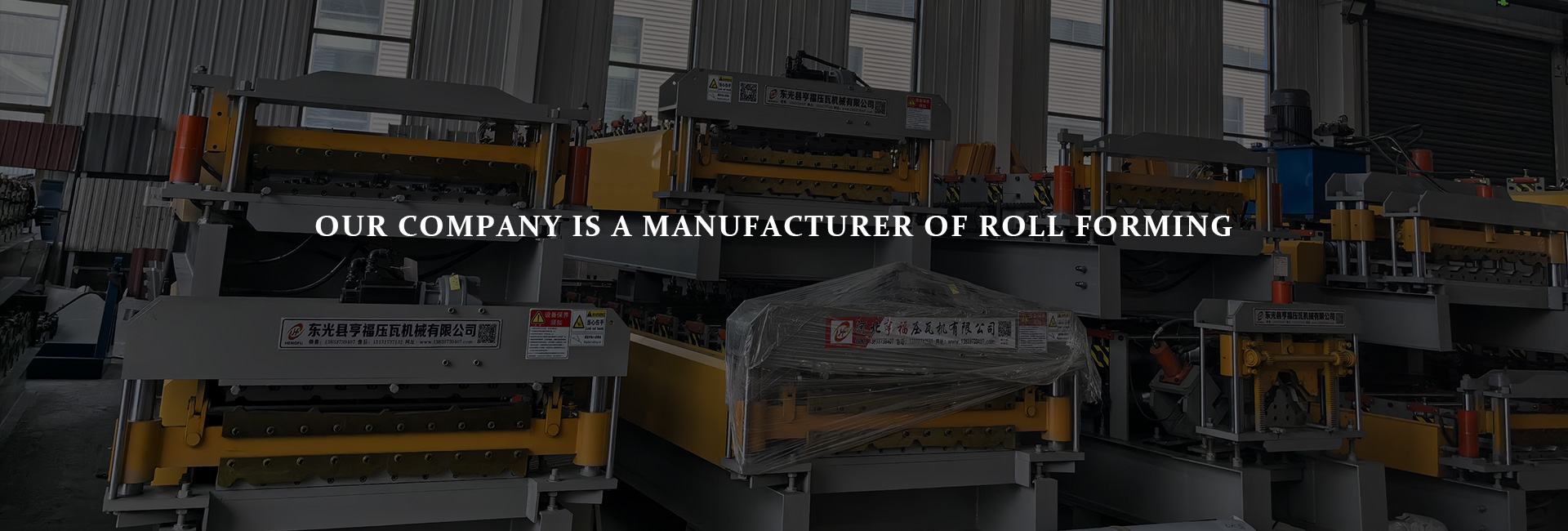In recent years, with the growing global focus on environmental protection and energy efficiency, the roll-forming machine industry is facing both challenges and opportunities for a green transformation. As a critical piece of equipment in building material production, the environmental and energy performance of roll-forming machines not only affects the industry's sustainable development but also plays a vital role in national environmental policies and market demands. This article will explore the significance of environmental protection and energy efficiency in the roll-forming machine industry and how technological innovation can drive its development.
Environmental Protection and Energy Efficiency Challenges in the Roll-Forming Machine Industry
1. Energy Consumption Issues
Traditional roll-forming machines consume a significant amount of electricity during the production process, resulting in low energy efficiency. High energy consumption not only increases production costs but also depletes natural resources.
2. Waste and Pollution Issues
Scrap materials and other waste produced during the manufacturing process, if not handled properly, can cause environmental pollution. Additionally, some older machines generate noise pollution during operation, affecting the surrounding environment.
3. Regulatory Pressure
As environmental regulations continue to tighten in various countries, the roll-forming machine industry must undergo technological upgrades in energy efficiency and emission reduction. Failure to comply may result in substantial environmental taxes or restrictive measures.
Practical Applications of Environmental Protection and Energy Efficiency in the Roll-Forming Machine Industry
1. Introduction of Energy-Efficient Motors
Modern roll-forming machines can significantly reduce energy consumption by using high-efficiency motors and variable frequency drives. This not only aligns with national energy-saving policies but also helps companies save on long-term electricity costs.
2. Optimizing Production Processes
By utilizing automation technology in the design of production lines, companies can improve equipment efficiency and reduce unnecessary energy waste. For example, synchronizing the feeding and cutting stages can significantly lower energy consumption.
3. Waste Recycling and Reuse
Scrap materials generated during the roll-forming process can be recycled and reprocessed, reducing raw material waste and environmental impact. Additionally, improving mold design to enhance material utilization is an effective energy-saving method.
4. Using Environmentally Friendly Materials
Manufacturing equipment with low-carbon or recyclable materials not only meets environmental requirements but also strengthens market competitiveness.
5. Application of Intelligent Technology
The integration of IoT technology and intelligent control systems enables roll-forming machines to achieve automated monitoring and data optimization, preventing resource waste caused by operational errors. These smart upgrades also help companies track carbon emissions, better achieving energy-saving and emission reduction goals.
Industry Case Study on Environmental Protection and Energy Efficiency
A roll-forming machine manufacturing company reduced the annual energy consumption of each machine by 25% by introducing energy-efficient motors and optimizing the control system, resulting in approximately 10% savings in operational costs. Additionally, the company launched an eco-friendly roll-forming machine, successfully entering the overseas market and earning high customer recognition. This case demonstrates that environmental protection and energy efficiency are not only social responsibilities but also essential strategies for enhancing market competitiveness.
Long-Term Benefits of Environmental Protection and Energy Efficiency
1. Reducing Production Costs
Applying energy-saving technology significantly lowers energy costs, providing substantial economic benefits to companies.
2. Enhancing Brand Image
In a market environment where environmental awareness is growing, companies that embrace green principles are more likely to earn customer trust and loyalty.
3. Meeting Policy and Regulatory Requirements
By implementing environmental protection and energy-saving measures, companies can more easily comply with increasingly stringent environmental policies, avoiding extra costs or operational disruptions caused by non-compliance.
4. Promoting Sustainable Industry Development
The widespread adoption of environmental protection and energy efficiency technologies not only benefits individual companies but also sets new industry benchmarks, driving overall upgrades and sustainability across the sector.
Conclusion
Environmental protection and energy efficiency have become critical topics in the roll-forming machine industry. By adopting advanced technologies and optimizing production processes, companies can achieve energy savings and emission reductions while enhancing competitiveness and market position. In the future, as environmental awareness continues to grow, the integration of green technologies will create more opportunities and value for the roll-forming machine industry.







